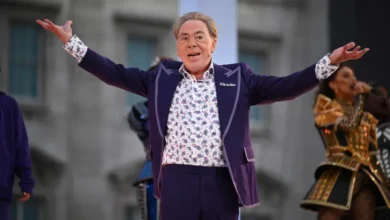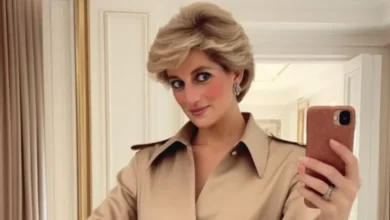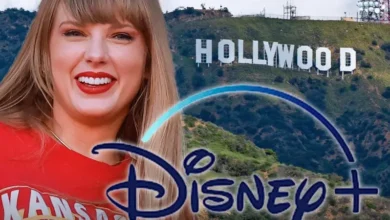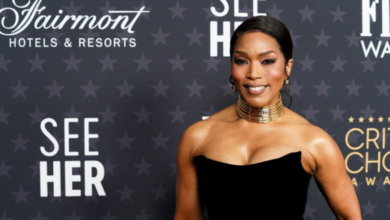All of Us Strangers: Andrew Scott film explores trauma and loss

All of Us Strangers, a new Bafta-nominated film starring Andrew Scott, follows a man in middle age who is drawn back to his childhood home and has a series of conversations with his parents over the following weeks.
There is a twist. His parents have been dead for more than 30 years.
His mother and father, played by Claire Foy and Jamie Bell, died in a car crash when he was still a boy. The interactions the character, Adam, has with them as the film progresses are therefore imagined.
Adam can only guess what their reactions might have been to his adult life; his job, personality, and, most significantly, his sexuality. His parents remain the ages they were when they died – which is why the actors playing them are younger than Scott.
Fantasy and reality are not always easily distinguished by Adam – or by the viewer. Adam goes about his life in a dream-like haze, something which sets the mood of the film. The result is a melancholy and absorbing piece of cinema which deals with themes of grief, loss, identity and isolation.
“More than anything, it’s about someone looking back into the past to understand how to move forward, and have conversations with the past as a way to feel more secure in the world,” director Andrew Haigh tells BBC News.
“It’s not the visceral pain of immediate grief and loss,” he continues. “I wanted to talk about pain across the board, all of the sort of difficulty and trauma and loss that you all experience throughout your life.”
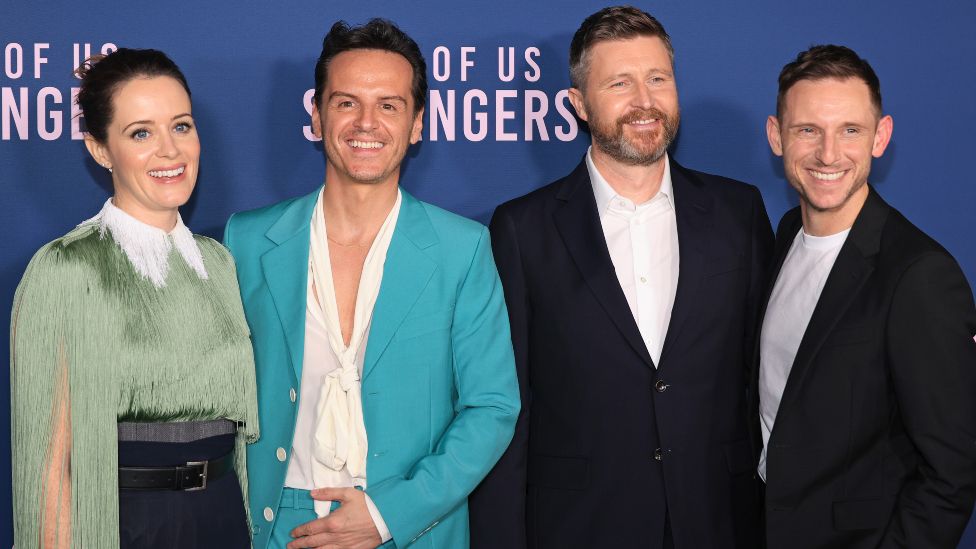
The idea of envisaged conversations will be relatable to many who have lost someone close. Wishing a parent, partner or friend was alive to share moments in the present is natural, and it can be a useful and comforting thought exercise to consider the discussions you wished you’d had then – or the ones you wish you could have now.
“Any kind of loss, whether it’s through death or divorcing parents, the breakdown of a family, a close friend that moves away, whatever it might be, there are these things in our life that leave an imprint,” Haigh says.
“They are always there and they bubble away, they grow and they exist forever. And you have to sometimes look back at them, and find a way to speak to them and uncover them again, because you need to as you go forward in your life, it doesn’t vanish.”
Taking a film with such a gloomy premise and turning it into something so enjoyable is quite a stunt to pull off – but Haigh has done so beautifully. All of Us Strangers has been greeted overwhelmingly by four and five-star reviews since its premiere at the autumn film festivals.
“It is a poignant, deeply melancholic exercise on the attempt to bridge the past with the present, a cosmic inquiry into resolving all that was unsaid through second chances that never were,” wrote The Wrap’s Tomris Laffly.
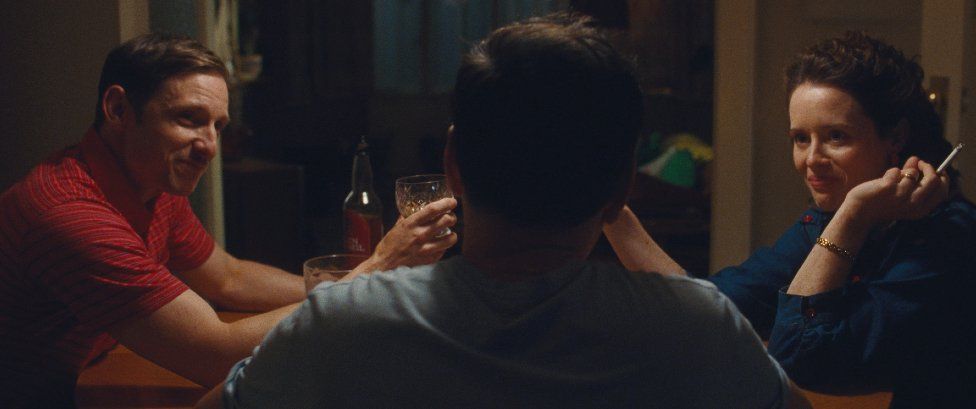
The Hollywood Reporter’s David Rooney agreed: “While it unfolds in a hazy dream state rooted in Adam’s loneliness and the emotional suspension that has blocked him from moving forward, it’s by no means a downer. It’s a thing of beauty, heartfelt and unforgettable.”
All of Us Strangers has been nominated for six Bafta Film Awards – including outstanding British film and best director for Haigh. The Oscar nominations will be announced on Tuesday.
The film is based on the 1987 novel Strangers by Taichi Yamada – but while the building blocks are similar, there are some noticeable differences between the source text and the film.
The original novel, set in Tokyo, plays like “a more traditional ghost story,” Haigh notes. “There’s a heterosexual love affair alongside it, no queer element.”
But in the film adaptation, Adam’s homosexuality is front and centre – and played out through a relationship that gradually develops with a younger man, Harry, one of the only other residents in their London tower block.
Harry, played by Aftersun and Normal People star Paul Mescal, occasionally encounters Adam in and around the near-empty building, aware of a certain romantic friction between them.
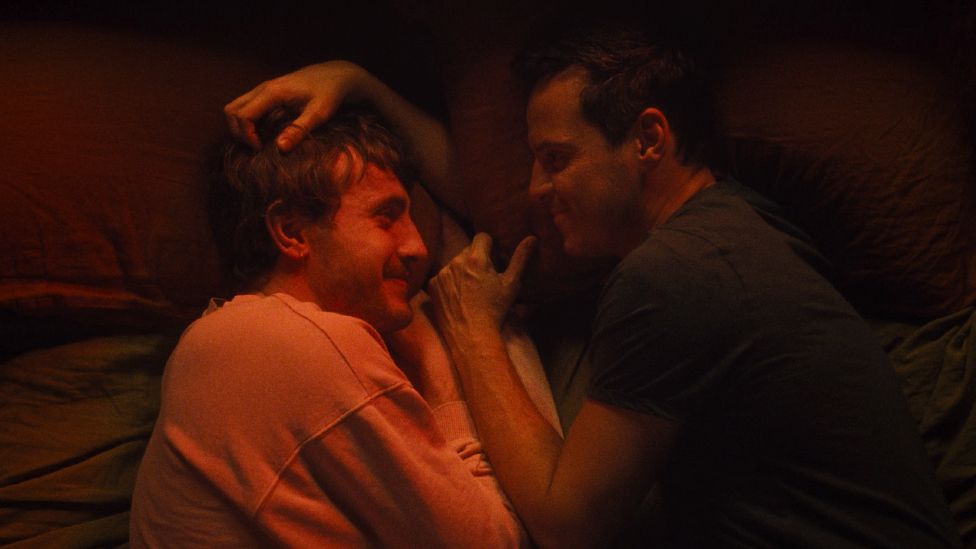
Haigh, whose previous films include Weekend and 45 Years, says it was important to have a gay actor such as Scott play the leading role.
“I wanted someone who I knew was a brilliant actor who could go through some very difficult emotional transitions in this film,” he explains. “But I also did want someone who was gay and who could understand the nuance of that stuff that’s being talked about under the surface or in the edges of the story.”
“It’s an interesting thing that a lot of gay people have to go through. And it’s hard to explain you had something within you that you felt may separate you from your parents and they’d reject you for it.”
Adam grew up in the 1980s, a time when society was far less accepting of homosexuality, particularly in light of the deepening Aids crisis, a disease many at the time mistakenly thought almost exclusively affected gay people.
Haigh says he was keen to cast an actor who “understood on a visceral level the fear of having to come out, the fear of rejection, the fear of growing up in the shadow of Aids, all the things that affected a generation of queer people”.
Mescal, on the other hand, is not gay – although his character appears in far fewer scenes. The actor has argued that the debate about straight actors playing gay roles is simplistic, and that the director and the film’s intentions are what’s most important.
“It depends who’s in charge of telling the story,” Mescal recently told the Sunday Times. “The issue is that there have been so many queer performances in cinema that have been offensive, but that’s because the film-makers and the actors have been careless. I don’t think this film exists in that conversation whatsoever.”
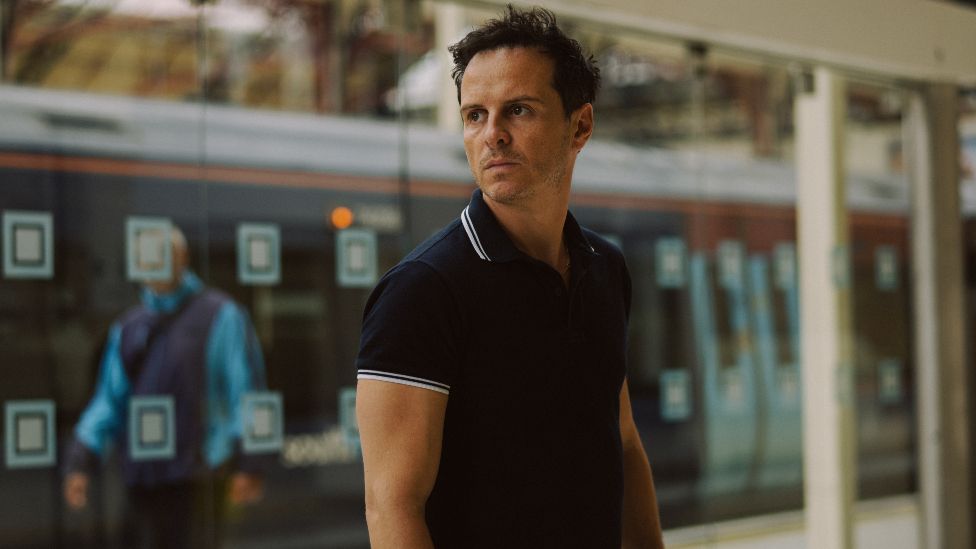
To begin with, Adam’s parents are not initially thrilled to hear about his sexuality. But they do not reject him outright. Instead, they seem more confused and curious about his lifestyle. They gradually warm up the more they learn.
“It was a really tough time for a lot of people, parents were very unaccepting, and the world did not like gay people back then. That’s how we felt anyway, as gay people,” Haigh recalls. “So I needed there to be a truth to it, I needed the parents to have a complicated reaction to it, but I also needed them to be accepting in the end because Adam absolutely needed that.
“And also,” he adds, “it is a reality that, if those parents had not died, they would have grown into an understanding of queerness and would have been accepting, because that is what we have seen happening in the world.”
In the UK – still, in many respects, a country of the stiff upper lip – the idea of exploring and discussing feelings and sexuality so deeply might work for a film, but be a horrifying prospect in reality.
“We’re terrible at saying the things we need to say,” Haigh agrees. “But I do think British people are good at being able to express those feelings without having those conversations. Americans often think we’re repressed and don’t want to talk about it. I don’t think that’s true, I think we just do things slightly differently.
“We might make a cup of tea for someone, and that is an expression of love, without us needing to say ‘I love you’. We do things in a way that are expressing our emotional sentiment, just through other methods.”
All of Us Strangers is in cinemas from Friday 26 January.

